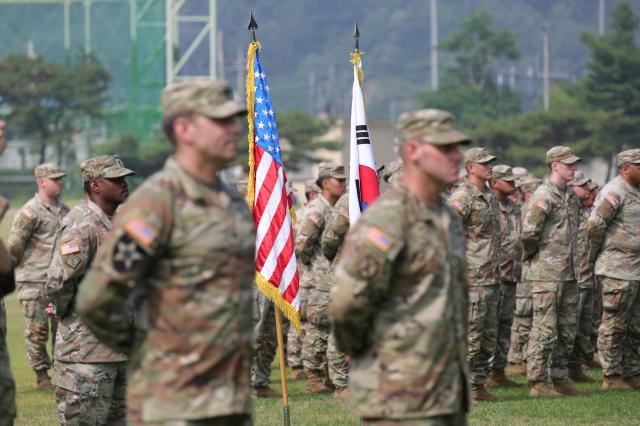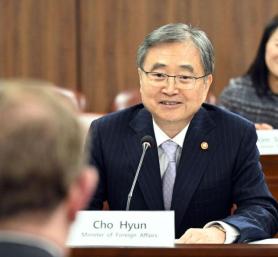
The committee's National Defense Authorization Act (NDAA) for next year passed last Friday contains a clause that "prohibits a reduction in U.S. military posture on the Korean Peninsula or a change in wartime operational control over the Combined Forces Command until the Secretary of Defense certifies to Congress that such action is in the national interest."
The NDAA, the backbone of U.S. defense budgets, also states that "the Chairman of the Joint Chiefs and the Commanders of Indo-Pacific Command and U.S. Forces Korea to conduct an independent risk assessment of any such changes."
Currently, there are about 28,500 the U.S. Forces Korea (USFK) troops in South Korea.
During his first term, U.S. President Donald Trump included a provision in the 2019 NDAA barring the use of funds "to reduce the total number of members of the Armed Forces serving on active duty who are deployed to [South Korea]." That was later removed under his successor President Joe Biden in 2022, reaffirming Washington's commitment to the bilateral alliance with its Asian ally.
The bill is passed annually by Congress to set defense policy, allocate funding priorities, and provide guidance on key security matters.
Earlier last week, Washington-based think tank Defense Priorities proposed cutting the number of U.S. troops stationed in South Korea "by more than 50 percent," stressing the need to "revise the U.S. global military posture to be consistent with protecting vital national interests," raising concerns here amid Trump's repeated attempts to leverage troop withdrawal or reduction in his tariff-related negotiations.
Copyright ⓒ Aju Press All rights reserved.




